Using Essential Oils to Keep Pests Away from Your Garden
Are you tired of pesky insects ruining your beautiful garden? Well, you’re not alone! Many gardeners face the same struggle, but what if I told you there’s a natural solution that not only keeps pests at bay but also adds delightful aromas to your space? Enter essential oils! These concentrated plant extracts are not just for aromatherapy; they can be your garden's best friend. In this article, we’ll explore how essential oils can effectively repel unwanted pests while keeping your garden vibrant and healthy.
Essential oils are derived from various plants and contain potent compounds that can deter insects. Unlike traditional pesticides, which often contain harsh chemicals, these oils provide a safe and eco-friendly alternative. Imagine walking through your garden, surrounded by the refreshing scent of peppermint or the uplifting aroma of citronella, all while knowing that you’re protecting your plants without harming the environment. It’s a win-win situation!
Throughout this article, we’ll delve into the specific benefits of using essential oils for pest control, highlight the top oils that you should consider, and share practical application methods. We’ll also touch on safety considerations to ensure that you and your loved ones remain protected while enjoying the beauty of your garden. So, are you ready to transform your gardening experience? Let’s dive in!
Using essential oils for pest control comes with a myriad of advantages. First and foremost, these oils are natural, meaning they won’t introduce harmful chemicals into your garden ecosystem. This is particularly important for those who are conscious about the health of their plants, pets, and family. With essential oils, you can create a safe environment that promotes biodiversity while keeping pests at bay.
Additionally, essential oils are known for their effectiveness against a wide range of pests. Whether it’s mosquitoes buzzing around during your evening garden stroll or ants marching into your flower beds, there’s an essential oil that can help. The potency of these oils can often lead to immediate results, providing a quick solution to your pest problems.
Moreover, the use of essential oils can enhance your gardening experience. The delightful fragrances can lift your mood and create a serene atmosphere. Who wouldn’t want to spend more time in a garden that smells like a refreshing mint or a calming lavender? It’s not just about pest control; it’s about creating a space that you love to be in!
Now, let’s get into the nitty-gritty of which essential oils are most effective for pest control. Here are some of the top contenders:
- Peppermint Oil: Known for its strong scent, peppermint oil is a powerful repellent for ants, spiders, and other common garden pests.
- Citronella Oil: This oil is widely recognized for its effectiveness against mosquitoes and is a staple in outdoor gardens.
- Eucalyptus Oil: Eucalyptus not only smells great but also repels various flying insects, making it perfect for summer evenings.
Each of these oils has unique properties that make them suitable for different pests. The best part? They can be used individually or combined for enhanced effectiveness!
Wondering how to incorporate these oils into your gardening routine? There are several methods to apply essential oils effectively:
Creating a spray solution is one of the easiest ways to use essential oils. Simply mix a few drops of your chosen oil with water in a spray bottle. This allows you to target specific areas in your garden, providing immediate protection against pests. Plus, it’s easy to reapply as needed!
For a more ambient approach, consider using essential oil diffusers in your garden. These devices can disperse the scents throughout the area, creating a barrier against unwanted insects while enhancing the overall atmosphere of your garden.
While essential oils are generally safe, it’s important to take some precautions. Not all oils are pet-friendly, and some plants may react negatively to certain oils. Always do your research to ensure you’re using pet-safe oils and consider testing a small area of your plants before widespread application.
Q: Are essential oils safe for my pets?
A: Some essential oils can be harmful to pets if ingested or applied directly. Always research pet-safe oils and consult with a veterinarian if unsure.
Q: How often should I apply essential oils in my garden?
A: It depends on the method of application and the level of pest activity. Generally, reapplying every few days or after rain is a good practice.
Q: Can I mix different essential oils?
A: Yes! Combining oils can enhance their pest-repelling properties. Just be sure to test the mixture on a small area first.
In conclusion, using essential oils in your garden not only protects your plants from pests but also promotes a healthier and more enjoyable environment. By embracing these natural methods, you can create a thriving garden that you love spending time in.
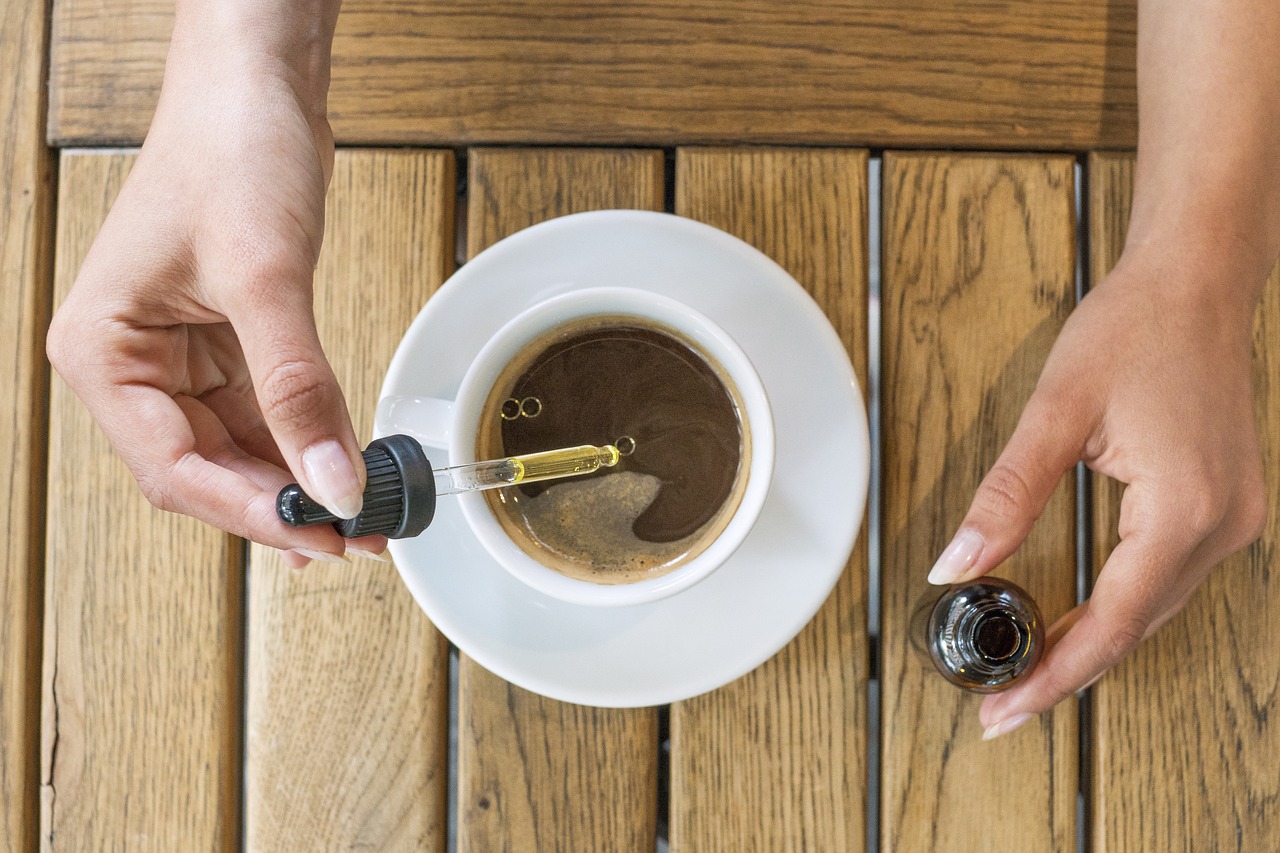
Benefits of Essential Oils in Pest Control
Essential oils are not just for aromatherapy or adding a pleasant scent to your home; they are also powerful allies in the battle against garden pests. One of the most significant advantages of using essential oils for pest control is their natural properties. Unlike synthetic pesticides, which can be harmful to the environment, essential oils are derived from plants and are biodegradable. This means that they break down naturally and do not leave behind toxic residues that could harm beneficial insects or pollinators.
Another key benefit is the safety for both plants and humans. Essential oils are generally safe to use around children and pets, provided they are used correctly. This is particularly important for gardeners who want to maintain a healthy and safe environment for their families. For instance, oils like lavender and peppermint not only repel pests but also have calming effects on humans, making gardening a more enjoyable experience.
Moreover, essential oils are effective against a variety of pests without the use of harmful chemicals. They can deter insects like ants, mosquitoes, and spiders, providing a natural solution to pest problems. For example, studies have shown that oils such as citronella and eucalyptus can significantly reduce mosquito populations in outdoor areas. This effectiveness can be attributed to the strong scents that many essential oils emit, which can mask the odors that attract pests.
In addition to their pest-repelling properties, essential oils can also be quite cost-effective. A little goes a long way, and when mixed with water, they can cover a large area without the need for frequent application. This means you can enjoy a pest-free garden without breaking the bank on expensive chemical treatments. Plus, creating your own pest control solutions at home can be a fun and rewarding project, allowing you to take charge of your garden's health.
Lastly, using essential oils as a pest control method is an excellent way to promote biodiversity in your garden. By avoiding synthetic chemicals, you create a habitat that supports a wide range of beneficial insects, such as bees and ladybugs, which are essential for pollination and maintaining ecological balance. This not only helps your garden flourish but also contributes to the health of the broader environment.
In summary, the benefits of using essential oils in pest control are numerous and compelling. They are natural, safe, effective, cost-efficient, and promote biodiversity, making them an ideal choice for any gardener looking to keep their plants healthy and thriving.
- Can essential oils harm plants? Generally, essential oils are safe for plants, but some may cause sensitivity. Always test on a small area first.
- How often should I apply essential oils in my garden? It depends on the type of oil and the pest problem. Typically, reapplication every 1-2 weeks is effective.
- Are essential oils safe for pets? Some essential oils can be harmful to pets. Always research pet-safe oils and consult with a veterinarian.
- Can I mix different essential oils? Yes, blending oils can enhance their effectiveness. Just ensure that the oils you combine are known to work well together.
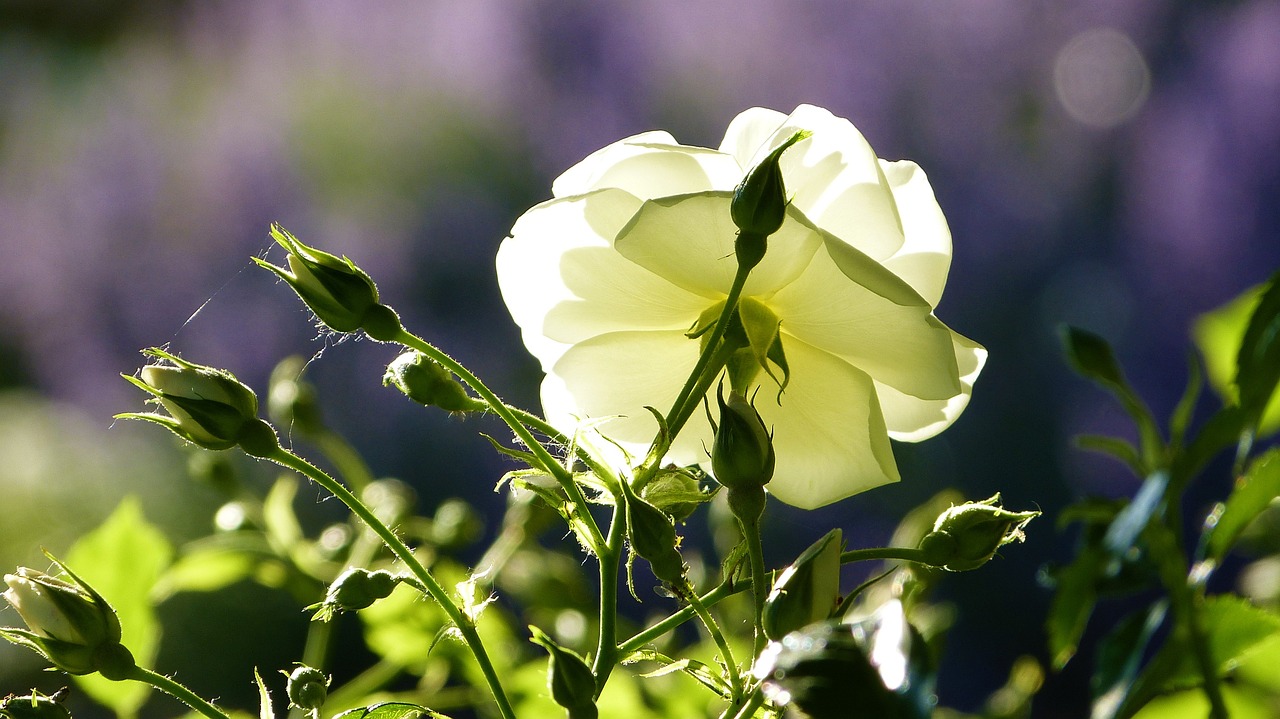
Top Essential Oils for Repelling Pests
When it comes to keeping your garden free from pesky intruders, essential oils can be your best friend. Not only do they smell amazing, but they also pack a punch against a variety of pests that can wreak havoc on your plants. Let’s dive into some of the most potent essential oils that can help you maintain a pest-free oasis.
First up is peppermint oil. This invigorating oil is renowned for its strong scent that not only refreshes your senses but also acts as a natural deterrent for ants, spiders, and even mosquitoes. Imagine walking through your garden and being greeted by the fresh aroma of peppermint while knowing that it’s also working hard to keep unwanted pests at bay. It’s like having a personal bodyguard for your plants!
Next on our list is citronella oil, a household name when it comes to repelling mosquitoes. If you’ve ever enjoyed a summer evening outdoors, you’ve likely encountered citronella candles. But did you know that this oil can also be used directly in your garden? Its natural properties make it an excellent choice for keeping flying insects away, allowing you to enjoy your outdoor space without the threat of annoying bites. Just a few drops can create a protective barrier that keeps those pesky mosquitoes at a distance.
Another fantastic oil is eucalyptus oil. Known for its refreshing scent, eucalyptus oil is effective against a variety of pests, including flies and fleas. Its strong aroma confuses and repels these unwanted visitors, making it a great addition to your pest control arsenal. Plus, its scent is invigorating and can help you feel more energized while you tend to your garden.
To give you a clearer picture of these essential oils and their pest-repelling properties, here’s a handy table:
| Essential Oil | Pests Repelled | Additional Benefits |
|---|---|---|
| Peppermint Oil | Ants, Spiders, Mosquitoes | Refreshing Aroma |
| Citronella Oil | Mosquitoes, Flies | Great for Outdoor Spaces |
| Eucalyptus Oil | Flies, Fleas | Invigorating Scent |
In addition to these oils, there are many other essential oils that can help keep your garden pest-free. Oils such as lavender and tea tree oil are also known for their pest-repelling properties. Lavender not only smells delightful but can deter moths and mosquitoes, while tea tree oil is effective against a variety of insects, including ants and cockroaches.
What’s truly amazing about using essential oils for pest control is that they are a natural alternative to chemical pesticides. This means you can protect your plants and the environment at the same time. Plus, with the right application methods, you can easily incorporate these oils into your gardening routine without much hassle.
So, the next time you’re looking to fend off pests in your garden, consider reaching for these essential oils. They not only enhance your gardening experience with their pleasant aromas but also provide an effective and safe solution for keeping your plants healthy and thriving.
Q: Are essential oils safe for pets?
A: While many essential oils are safe, some can be harmful to pets. Always research specific oils and consult with a veterinarian if you're unsure.
Q: How often should I apply essential oils in my garden?
A: It’s best to reapply every few days or after rain to ensure effectiveness. Adjust based on pest activity.
Q: Can I mix different essential oils?
A: Yes! Combining oils can enhance their properties. Just be sure to research which oils work well together.
Q: Will essential oils harm my plants?
A: Most essential oils are safe for plants, but some sensitive plants may react negatively. Always test a small area first.
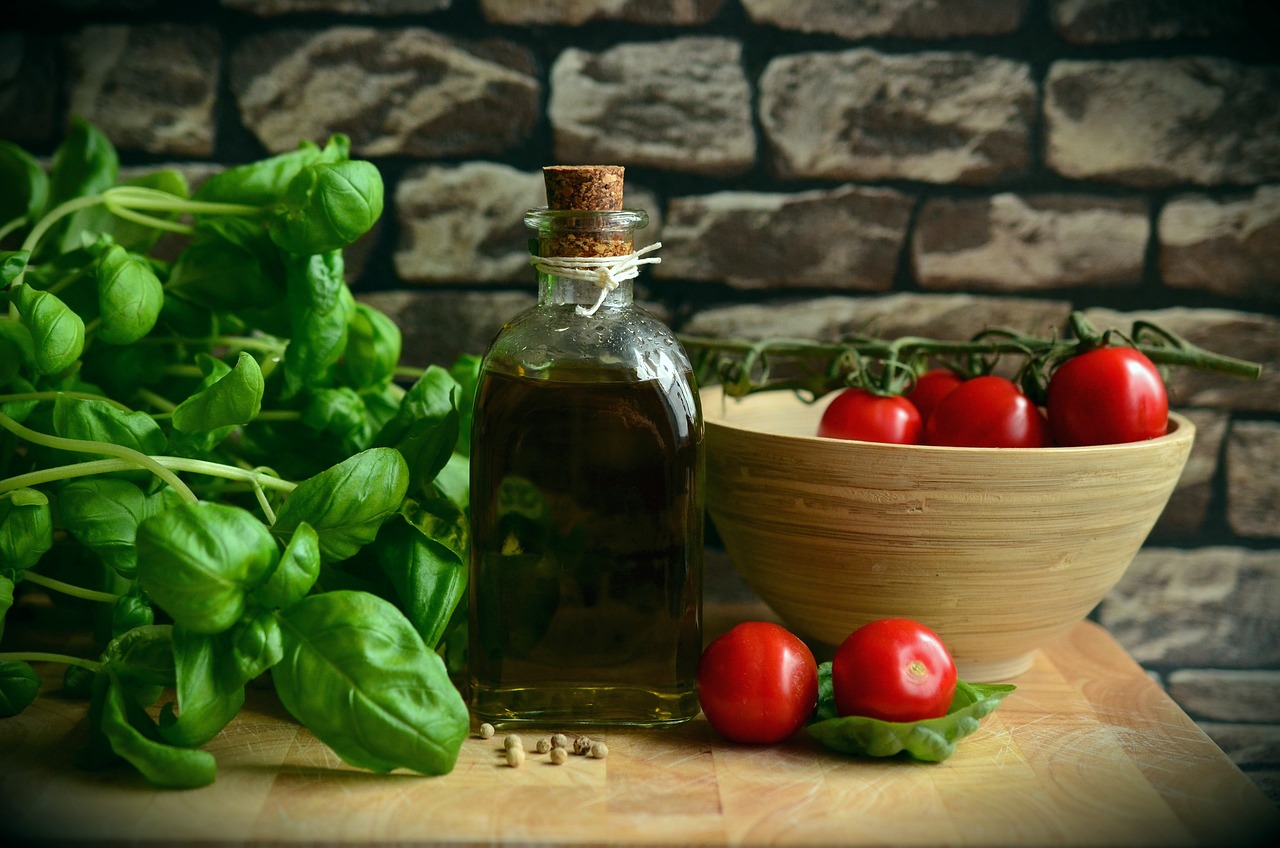
Peppermint Oil
Peppermint oil is not just a delightful scent that can invigorate your senses; it’s also a powerful ally in the battle against garden pests. Its strong aroma acts as a natural deterrent for a variety of unwanted insects, including ants, spiders, and even mosquitoes. Imagine walking through your garden, the fresh scent of peppermint filling the air, while pesky insects steer clear of your plants. This is the magic of peppermint oil at work!
One of the best aspects of peppermint oil is its ease of use. You don’t need to be a garden expert to harness its benefits. Simply dilute the oil with water and spray it around your garden, or apply it to cotton balls and place them strategically throughout your planting areas. This simple method not only keeps pests at bay but also creates a refreshing atmosphere that makes your gardening experience much more enjoyable.
When using peppermint oil, it’s important to remember that while it is effective, it should be used responsibly. Always dilute the oil before application to prevent any potential damage to your plants. A good rule of thumb is to mix about 10-15 drops of peppermint oil with a spray bottle filled with water. Shake well before use, and you’re ready to create a pest-free zone!
In addition to its pest-repelling properties, peppermint oil has several other benefits. Not only does it help you maintain a healthy garden, but its refreshing aroma can also uplift your mood and make your gardening experience more pleasant. Imagine the dual benefit of protecting your plants while also enjoying the invigorating scent wafting through the air. It’s a win-win!
However, it’s essential to be mindful of the concentration of peppermint oil you use. Too much can lead to plant sensitivity, especially for delicate varieties. To ensure compatibility, consider testing a small area of your garden before widespread application. This way, you can enjoy the benefits of peppermint oil without risking harm to your beloved plants.
Overall, peppermint oil is a fantastic, natural solution for keeping pests away from your garden. Its versatility and effectiveness make it a must-have for any gardener looking to embrace eco-friendly pest control methods. So why not give it a try? Your plants will thank you!
- Can peppermint oil harm my plants? Yes, if used in high concentrations. Always dilute before application.
- Is peppermint oil safe for pets? While generally safe, it’s best to consult a vet, as some pets may have sensitivities.
- How often should I reapply peppermint oil? Reapply every few days or after rain for best results.
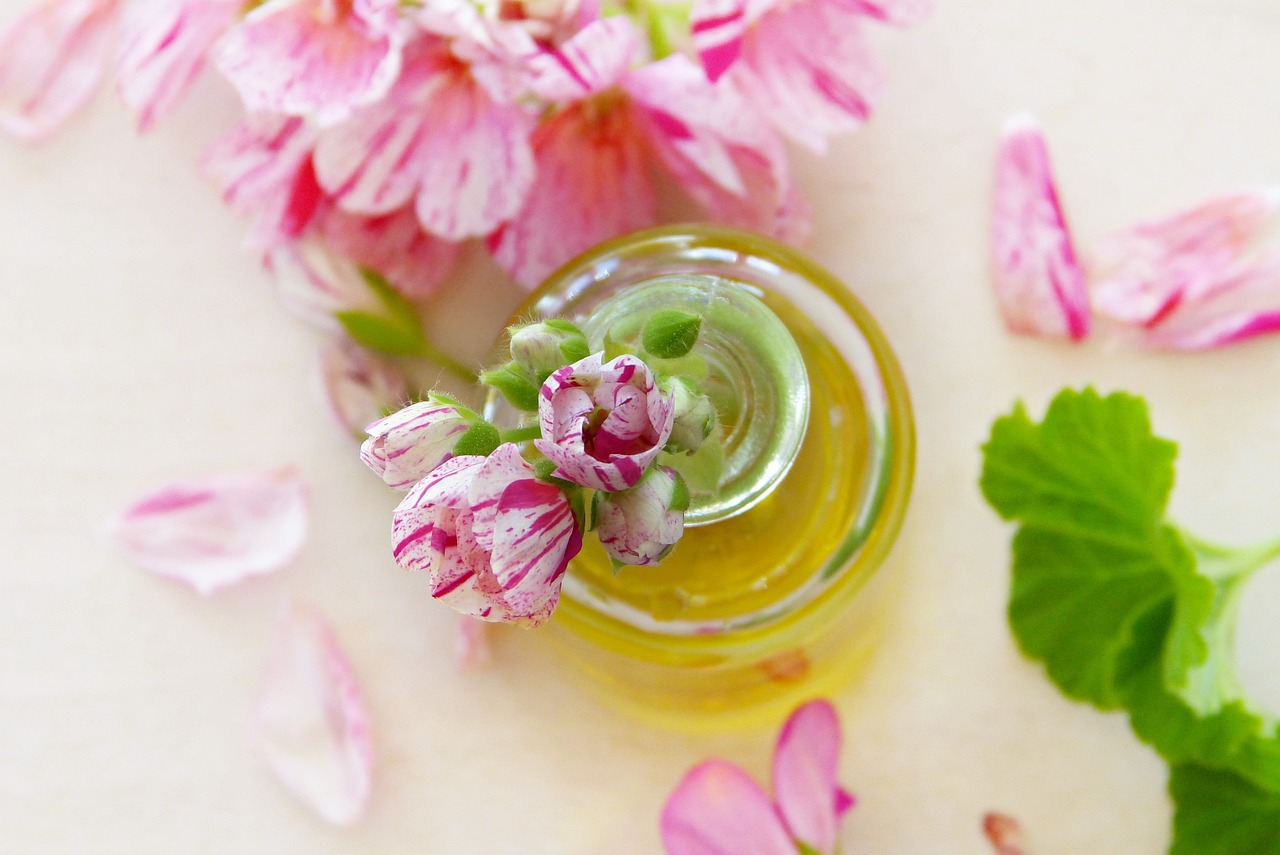
How to Use Peppermint Oil
Using peppermint oil in your garden is not just simple; it’s also an enjoyable experience that can transform your gardening routine! To get started, you’ll need to create a peppermint oil spray that can be easily applied to your plants and garden areas. Here’s how you can do it:
First, gather your materials: you’ll need a spray bottle, water, and, of course, pure peppermint essential oil. A good ratio to start with is 10-15 drops of peppermint oil per cup of water. This concentration is effective enough to deter pests while remaining gentle on your plants.
Next, pour the water into the spray bottle and add the peppermint oil drops. Make sure to shake the bottle well before each use to ensure the oil is evenly mixed. One of the best things about this method is its immediate effectiveness. You can spray it directly onto the leaves of your plants, focusing on the undersides where pests often hide. This not only helps repel unwanted insects but also creates a delightful aroma in your garden!
Another innovative way to use peppermint oil is by soaking cotton balls in the oil and placing them strategically around your garden. This method is particularly useful for areas where you’ve noticed a high concentration of pests. The strong scent will create a barrier that many insects find uninviting. Just remember to refresh the cotton balls every few days to maintain their potency.
Additionally, if you are looking for a more long-term solution, consider combining peppermint oil with other pest-repelling essential oils. For instance, mixing peppermint with citronella or eucalyptus can create a powerful blend that targets a wider range of pests. Just be sure to maintain the same ratio of oil to water when creating your mixtures.
In summary, using peppermint oil is a straightforward and effective way to keep your garden pest-free. Whether you choose to spray it or use cotton balls, the refreshing aroma and pest-repelling properties of peppermint oil will enhance your gardening experience while protecting your plants. So, why not give it a try? Your garden will thank you!
- Can I use peppermint oil on all types of plants?
While peppermint oil is generally safe for most plants, it's always a good idea to test it on a small area first to ensure there’s no adverse reaction. - How often should I apply peppermint oil?
Reapply every 5 to 7 days or after heavy rain to maintain effectiveness. - Is peppermint oil safe for pets?
While peppermint oil is natural, it can be harmful to pets if ingested. Always keep your pets away from treated areas until the oil has dried.

Benefits of Peppermint Oil
Peppermint oil is not just a fragrant addition to your pantry; it’s a powerhouse in the garden, offering a multitude of benefits that go beyond pest control. One of the most remarkable advantages is its refreshing aroma, which can transform your gardening experience into a delightful sensory journey. Imagine tending to your plants surrounded by the cool, invigorating scent of peppermint—it's like having a mini spa right in your backyard!
Moreover, peppermint oil is known for its natural pest-repelling properties. It effectively deters a variety of unwanted insects, including ants, spiders, and even mosquitoes. This means you can enjoy your garden without the constant annoyance of pests buzzing around. Unlike chemical pesticides, peppermint oil is safe for both plants and beneficial insects, ensuring that your garden ecosystem remains balanced and healthy.
Another significant benefit of peppermint oil is its easy application. It can be mixed with water to create a simple spray solution, making it accessible for any gardener, regardless of experience. Not only does this method provide immediate protection against pests, but it also allows for flexibility in application. You can reapply as needed, especially after rain or watering, ensuring that your garden remains a pest-free zone.
In addition to its pest-repelling qualities, peppermint oil also has therapeutic benefits. The scent of peppermint is known to enhance mood and boost focus, making your time in the garden not just productive but also enjoyable. This dual benefit of pest control and personal well-being is a win-win situation that many gardeners appreciate.
Lastly, peppermint oil is a natural choice for those seeking eco-friendly solutions. By opting for peppermint over synthetic chemicals, you contribute to a healthier environment. You’re not only protecting your plants but also promoting sustainability in your gardening practices. So, the next time you think about pest control, remember that peppermint oil is more than just a deterrent; it’s a holistic approach to gardening that benefits you, your plants, and the planet.
- Is peppermint oil safe for all plants? While peppermint oil is generally safe for most plants, it’s always a good idea to test a small area first to ensure there are no adverse reactions.
- How often should I apply peppermint oil in my garden? It’s recommended to reapply every week or after heavy rainfall to maintain its effectiveness.
- Can peppermint oil harm beneficial insects? No, peppermint oil is safe for beneficial insects, making it a great choice for organic gardening.
- Where can I purchase high-quality peppermint oil? Look for essential oils at health food stores, specialty shops, or online retailers that offer pure and organic options.
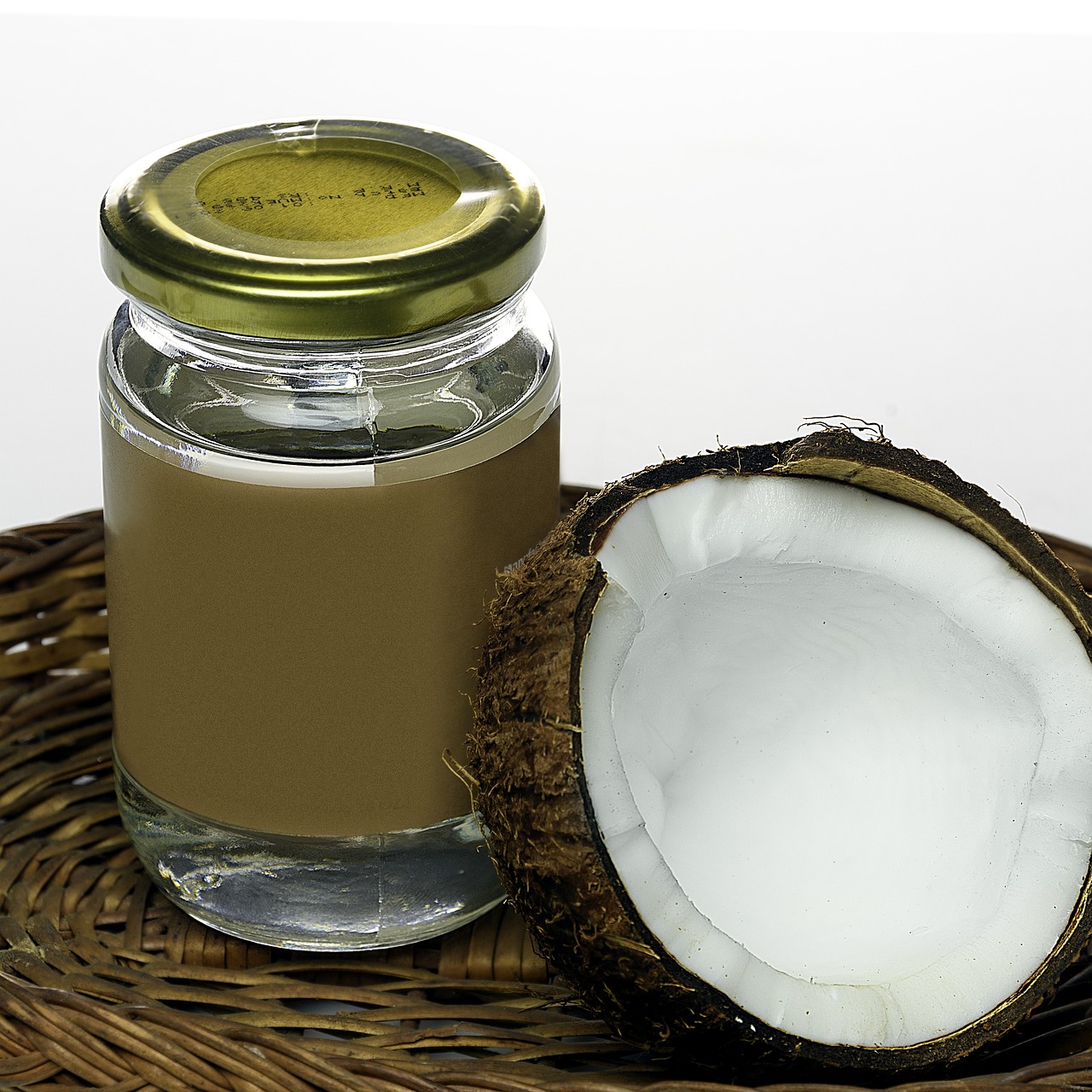
Citronella Oil
is a powerhouse when it comes to keeping pesky flying insects at bay. Derived from the leaves and stems of the citronella grass, this essential oil is renowned for its ability to repel mosquitoes and other unwelcome visitors. Its fresh, lemony scent not only refreshes the air but also creates an invisible shield around your garden, making it a popular choice for outdoor spaces. Imagine enjoying a lovely evening in your garden without the constant buzzing of mosquitoes—sounds dreamy, right?
What makes citronella oil so effective? The secret lies in its unique chemical composition, which has been shown to disrupt the sensory receptors of insects, making it difficult for them to locate their targets. This means that by simply incorporating citronella oil into your gardening routine, you can significantly reduce the number of pests that invade your space.
To maximize the benefits of citronella oil, consider using it in various ways:
- Spray Solution: Mix citronella oil with water in a spray bottle and apply it around your garden. This method is great for targeted pest control.
- Soaked Cotton Balls: Soak cotton balls in citronella oil and place them strategically around your garden. This creates a fragrant barrier that pests will avoid.
- Diffusers: Utilize essential oil diffusers to disperse the scent throughout your outdoor space, enhancing the ambiance while keeping bugs at bay.
Moreover, citronella oil is not just effective; it’s also a safe alternative to chemical repellents. Unlike synthetic pesticides that can harm beneficial insects and the environment, citronella oil is derived from natural sources, making it a more eco-friendly option. This means you can enjoy a pest-free garden without compromising the health of your plants or the ecosystem.
However, while citronella oil is generally safe, it’s essential to use it responsibly. Always dilute it properly before application, especially if you’re using it on plants. Some sensitive plants may react adversely to concentrated oils. A good rule of thumb is to conduct a patch test on a small area of the plant before widespread application.
In conclusion, incorporating into your garden care routine can lead to a more pleasant and pest-free gardening experience. Its natural properties not only repel insects but also contribute to a healthier environment, allowing you to enjoy your outdoor space to the fullest.
Q: Is citronella oil safe for pets?
A: While citronella oil is generally safe, it's important to use it with caution around pets. Always ensure that they do not ingest it, and consult your veterinarian if you have concerns.
Q: Can I use citronella oil on all types of plants?
A: Not all plants react well to essential oils. It's advisable to test a small area first to see how the plant responds before applying it more broadly.
Q: How often should I reapply citronella oil?
A: The frequency of reapplication depends on environmental factors such as rain and wind. Generally, you should reapply every few days or after heavy rainfall to maintain effectiveness.
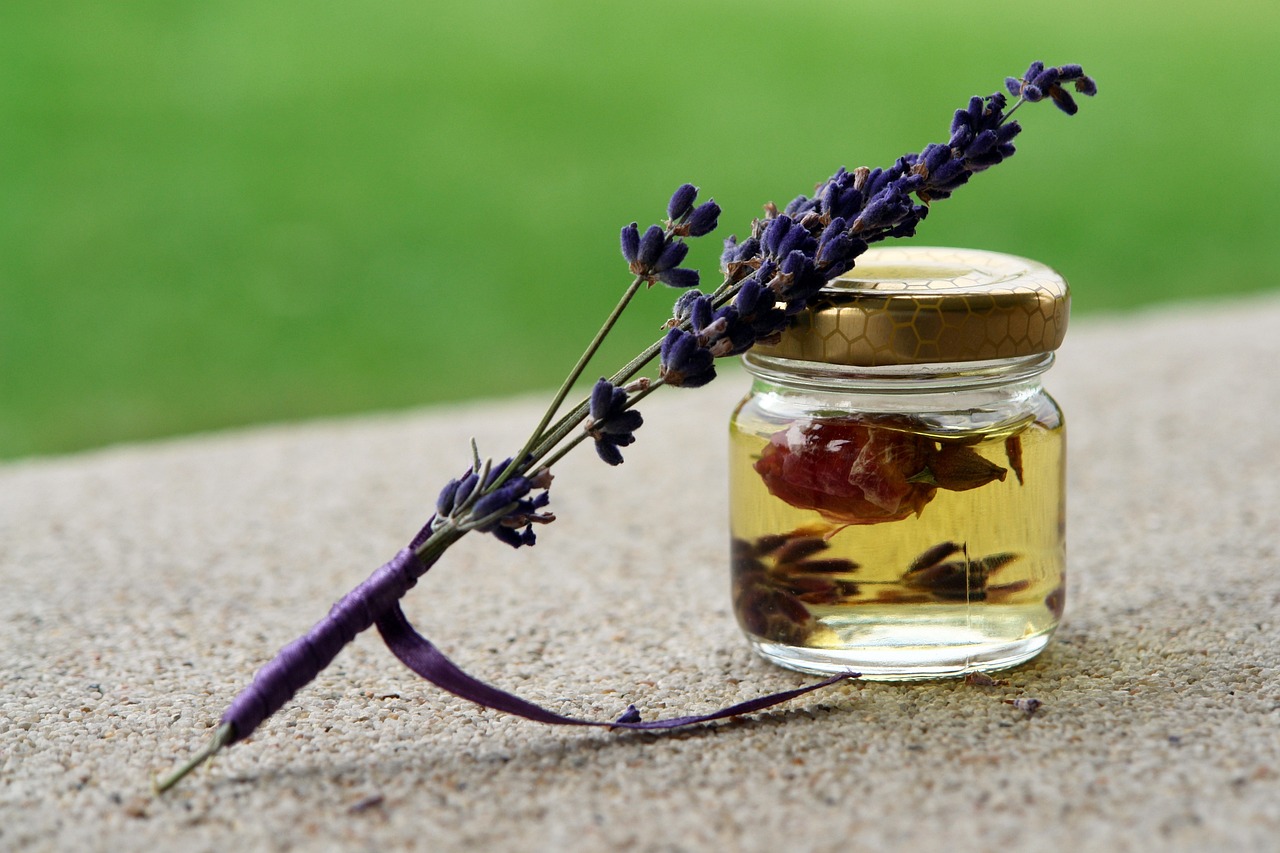
Application Methods for Essential Oils
When it comes to using essential oils for pest control in your garden, the method of application can greatly influence their effectiveness. There are several creative and practical ways to harness the power of these natural oils, ensuring that your garden remains a thriving, pest-free haven. One of the most popular methods is creating a spray solution. By mixing essential oils with water and a carrier, you can easily target specific plants and areas that are prone to pest invasions. This method not only provides immediate protection but also allows for quick reapplication whenever necessary, especially after rain. Imagine walking through your garden, spritzing this delightful concoction and watching as the pests scurry away!
Another effective approach is using essential oil diffusers. These devices can be strategically placed around your garden or patio, releasing the invigorating scents of essential oils into the air. This creates a natural barrier that keeps unwanted insects at bay while also enhancing the atmosphere of your outdoor space. Picture a warm summer evening, the sun setting, and the gentle aroma of citronella wafting through the air—it's not just a pest deterrent, but an experience!
Additionally, you can utilize soaked cotton balls to repel pests. By saturating cotton balls with essential oils and placing them in areas where pests are likely to enter, you create a simple yet effective trap. This method is particularly useful for indoor plants or smaller garden spaces where a full spray might be impractical. Just imagine the ease of popping a few cotton balls in strategic locations and knowing you have a natural defense against those pesky intruders!
To help you understand the effectiveness of these methods, here’s a quick comparison table:
| Application Method | Effectiveness | Ease of Use |
|---|---|---|
| Spray Solution | High | Moderate |
| Essential Oil Diffusers | Moderate | Easy |
| Soaked Cotton Balls | Moderate | Very Easy |
In conclusion, the application methods for essential oils in pest control are diverse and adaptable to your gardening style. Whether you choose to spray, diffuse, or use cotton balls, each method offers unique benefits. Not only do these methods provide effective pest deterrence, but they also allow you to enjoy the aromatic benefits of essential oils while tending to your garden.
Q: Are essential oils safe for pets?
A: While many essential oils are safe, some can be harmful to pets. Always research and ensure the oils you choose are pet-friendly.
Q: How often should I apply essential oils in my garden?
A: It’s best to reapply every few days, especially after rain or heavy watering, to maintain effectiveness.
Q: Can I mix different essential oils?
A: Yes! Mixing oils can enhance their effectiveness. Just be sure to research which combinations work well together.
Q: Will essential oils harm my plants?
A: Most essential oils are safe for plants, but it’s wise to test on a small area first to ensure there’s no adverse reaction.
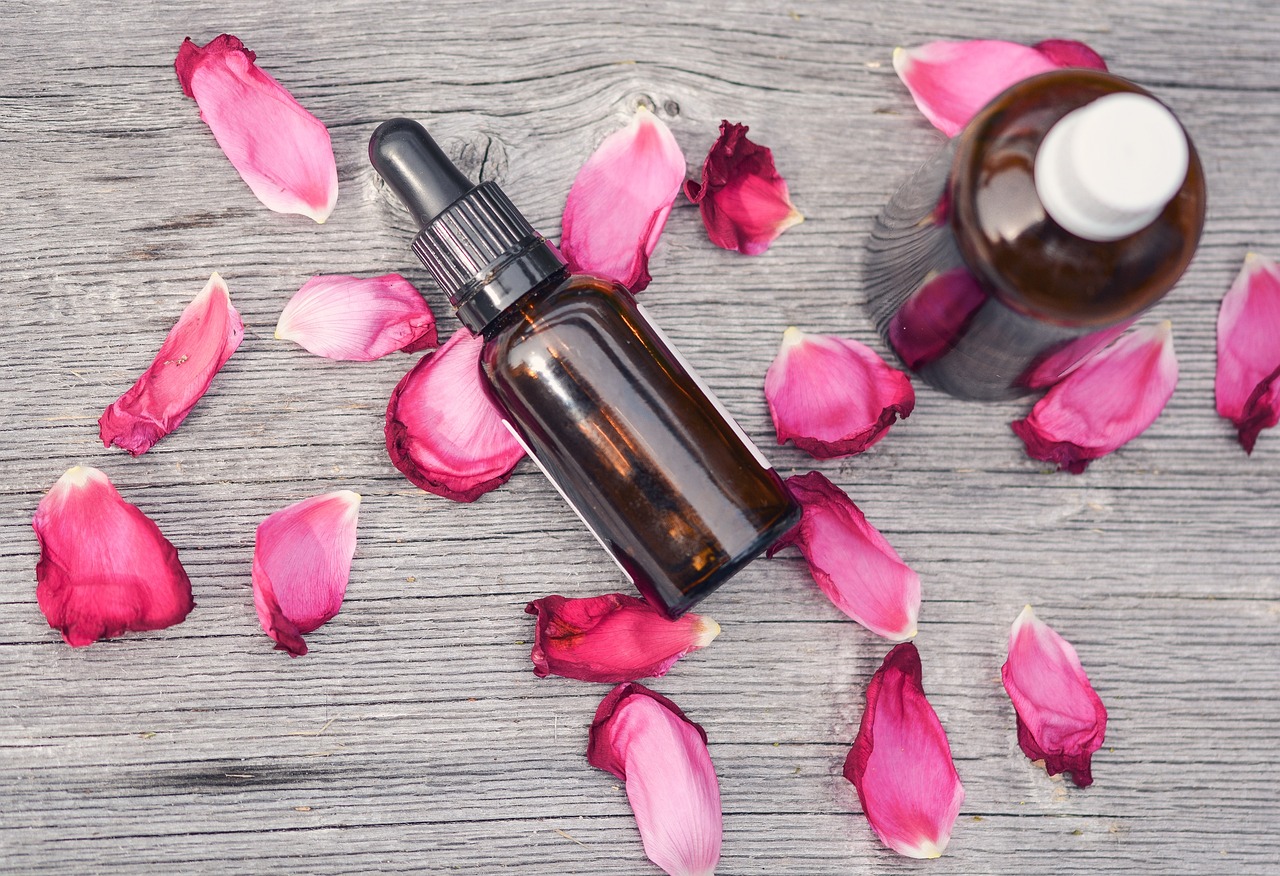
Spray Applications
When it comes to keeping pests at bay, of essential oils are one of the most effective methods you can use in your garden. Not only do these sprays offer immediate protection, but they also allow for targeted application directly on plants and around their vicinity. Imagine being able to walk through your garden, knowing that you have created a natural barrier against pesky insects without resorting to harmful chemicals. Sounds amazing, right?
Creating a spray solution is simple and can be customized to suit your specific pest problems. Typically, you'll want to mix a few drops of your chosen essential oil with water and a natural emulsifier, such as witch hazel or a mild liquid soap. This helps the oils mix with water, ensuring an even distribution when you spray. Here's a quick guide to help you get started:
| Essential Oil | Water (in cups) | Emulsifier (in tablespoons) |
|---|---|---|
| Peppermint Oil | 2 | 1 |
| Citronella Oil | 2 | 1 |
| Eucalyptus Oil | 2 | 1 |
Once your spray is mixed, transfer it into a spray bottle. Now comes the fun part! You can spray it directly onto the leaves of your plants, focusing on areas where you’ve noticed pest activity. The aroma of the essential oils will not only deter the pests but will also create a refreshing scent in your garden. Just remember, reapplication is key. Rain or watering can wash away the oils, so it’s a good idea to reapply your spray every couple of weeks or after heavy rains.
Another fantastic advantage of spray applications is their versatility. You can use them not only on your garden plants but also around patios, decks, and other outdoor living areas to create a pest-free zone. Just think of it as creating a natural fortress around your cherished outdoor spaces. However, it’s important to test a small area of your plants first to ensure they do not react negatively to the essential oils.
In summary, spray applications of essential oils are a powerful and eco-friendly way to protect your garden from unwanted pests. With a bit of preparation and the right oils, you can create a beautiful, thriving garden that is not only safe for you and your family but also for the environment.
- Can I use essential oils on all types of plants? - While many plants are safe, some may be sensitive to essential oils. Always test a small area first.
- How often should I reapply the spray? - It's best to reapply every couple of weeks or after heavy rain.
- Are essential oils safe for pets? - Some essential oils can be harmful to pets, so research pet-safe oils before use.
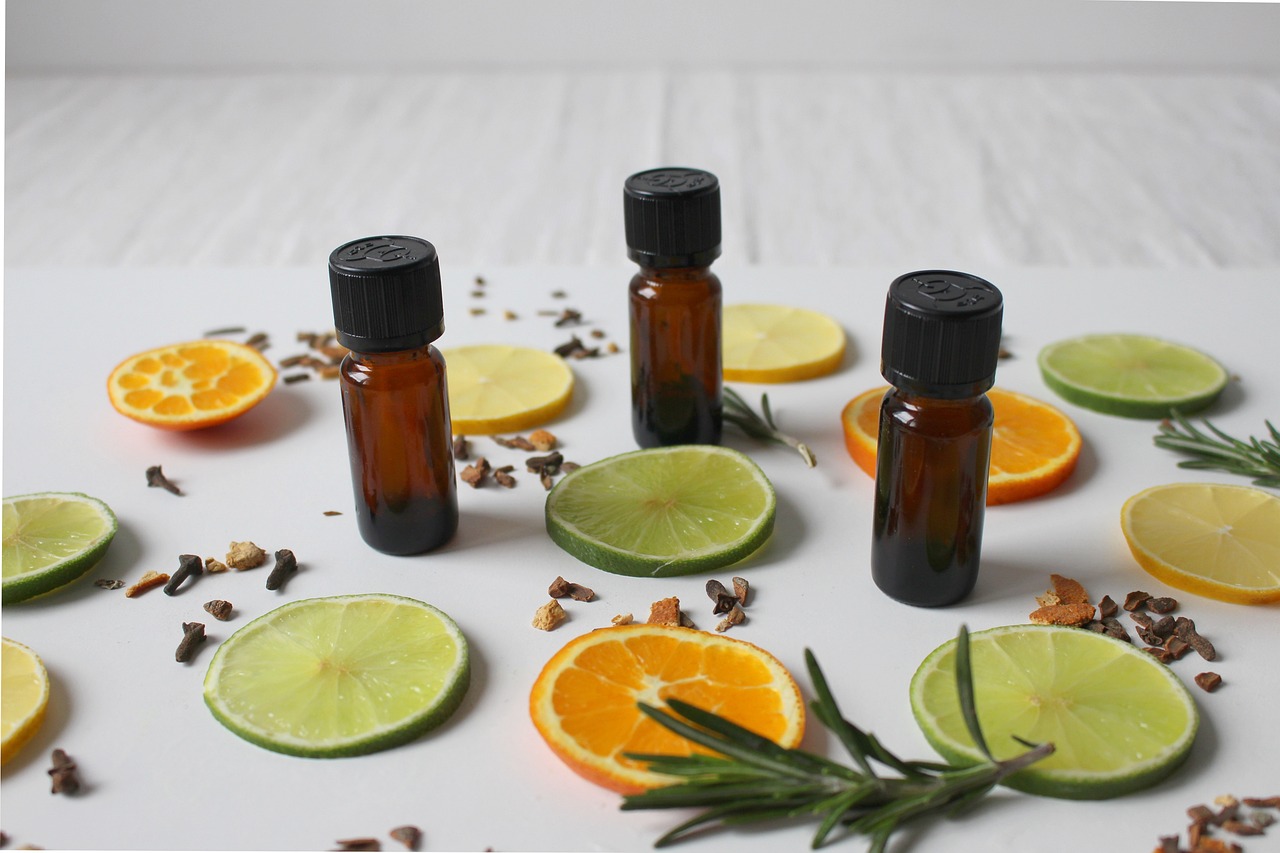
Using Diffusers
When it comes to keeping your garden free from pests, is a game-changer. Imagine walking through your garden, surrounded by the delightful scents of essential oils wafting through the air, while pesky insects are kept at bay. Essential oil diffusers not only help in repelling unwanted insects but also create a serene and aromatic atmosphere that enhances your gardening experience. By strategically placing these diffusers around your garden, you can create a protective barrier that discourages pests from invading your green space.
Diffusers work by dispersing the concentrated scents of essential oils into the air. This method is particularly effective because it allows for a more widespread distribution of the aroma, making it harder for pests to approach. For instance, you can fill a few diffusers with oils like peppermint or citronella and place them near entry points or areas where you notice high pest activity. The continuous release of these scents will not only repel insects but also make your garden a more pleasant place to be.
Another advantage of using diffusers is their versatility. They come in various forms, from electric models to simple reed diffusers. You can choose the type that best suits your garden setup. For example, electric diffusers can be plugged in near your patio or garden shed, while reed diffusers can be placed in more remote areas. Regardless of the type you choose, the key is to ensure that the oils used are potent enough to create an effective barrier.
To maximize the effectiveness of your diffusers, consider the following tips:
- Choose the Right Oils: Some oils are more effective than others at repelling specific pests. Research and select oils that target the insects you’re dealing with.
- Regular Refills: Essential oils can evaporate quickly, especially in warm weather. Make sure to check and refill your diffusers regularly to maintain their pest-repelling capabilities.
- Placement is Key: Position your diffusers near areas where pests are most active, such as near plants that attract them or around sitting areas where you enjoy your garden.
Overall, using diffusers is a simple yet effective method to keep your garden healthy and pest-free. By enveloping your outdoor space in the fragrant aromas of essential oils, you can enjoy the beauty of your garden without the annoyance of unwanted visitors. So, why not give it a try? You might just find that your garden becomes not only a sanctuary for you but also a less inviting place for pests.
Q: How often should I change the essential oils in my diffuser?
A: It's best to change the oils every few days or whenever you notice the scent fading. This will ensure maximum effectiveness in keeping pests away.
Q: Can I use any essential oil in my diffuser?
A: Not all essential oils are effective for pest control. It's important to choose oils known for their repellent properties, such as peppermint, citronella, and eucalyptus.
Q: Are there any safety concerns when using diffusers around pets?
A: Yes, some essential oils can be harmful to pets. Always research pet-safe oils and consult your veterinarian if you're unsure.
Q: How can I enhance the effectiveness of my diffuser?
A: You can enhance effectiveness by using a combination of essential oils that work well together, ensuring proper placement, and regularly refilling the diffuser with fresh oils.
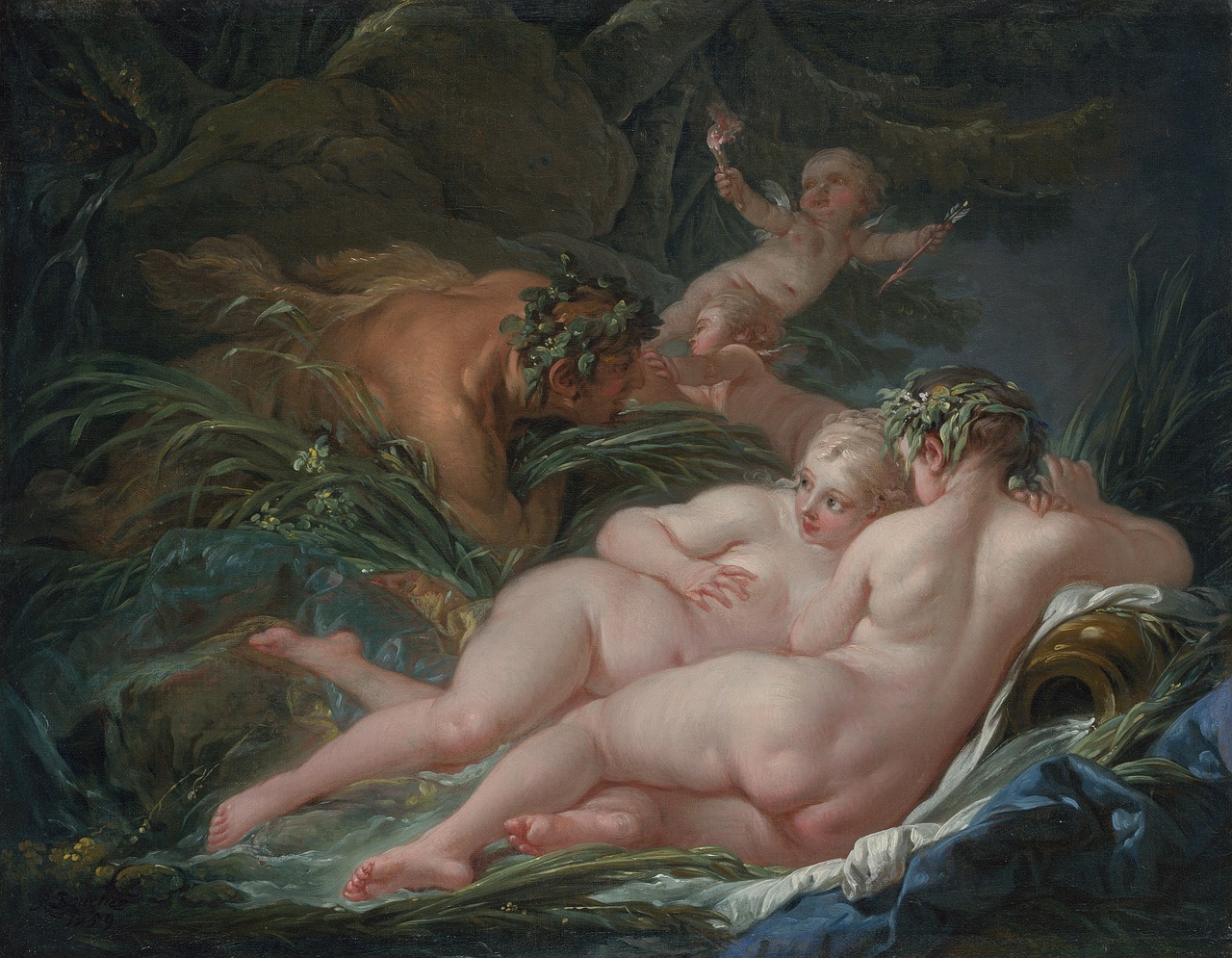
Safety Considerations
When it comes to using essential oils in your garden, safety should always be a top priority. While these oils are derived from natural sources and can be effective in pest control, they are not without their risks. It’s essential to understand how to use them correctly to protect not just your plants but also your loved ones—especially pets and children. Being informed is key!
First and foremost, certain essential oils can be toxic to pets if ingested or applied improperly. For instance, oils like tea tree and eucalyptus can be harmful to dogs and cats. Therefore, before you decide to use any essential oil, it’s crucial to do your homework. Researching pet-safe oils and understanding their effects can save you from potential harm. Always keep your pets away from freshly treated areas until the oils have completely dried.
Another important aspect to consider is the sensitivity of your plants. Not all plants tolerate essential oils well. Some may experience adverse reactions, such as wilting or discoloration, when exposed to certain oils. To ensure compatibility, it’s wise to conduct a patch test before widespread application. Simply apply a diluted solution of the essential oil on a small area of the plant and observe it over a few days. If there are no negative effects, you can proceed with confidence.
Here’s a quick reference table summarizing essential oils and their safety considerations:
| Essential Oil | Pet Safety | Plant Sensitivity |
|---|---|---|
| Peppermint Oil | Generally safe, but use in moderation | Safe for most plants |
| Tea Tree Oil | Toxic to cats and dogs | Can cause irritation in some plants |
| Citronella Oil | Generally safe | Safe for most plants |
| Eucalyptus Oil | Potentially harmful to pets | May cause sensitivity in some plants |
Lastly, it’s also important to consider the environment in which you’re using these oils. Some essential oils can be potent and may affect beneficial insects like bees and butterflies if misapplied. Always aim for targeted applications and avoid spraying during peak pollination times to minimize any negative impact.
In conclusion, while essential oils can be a fantastic addition to your natural pest control arsenal, being mindful of their safety is crucial. By taking the necessary precautions and conducting thorough research, you can enjoy the benefits of essential oils while keeping your garden, pets, and family safe.
- Are essential oils safe for children? Yes, but it’s important to dilute them properly and keep them out of reach.
- Can I use essential oils on edible plants? Many essential oils are safe for use on edible plants, but always wash fruits and vegetables thoroughly before consumption.
- How often should I reapply essential oils in my garden? Reapplication depends on the specific oil and weather conditions, but generally, it's good to reapply every few days or after rain.
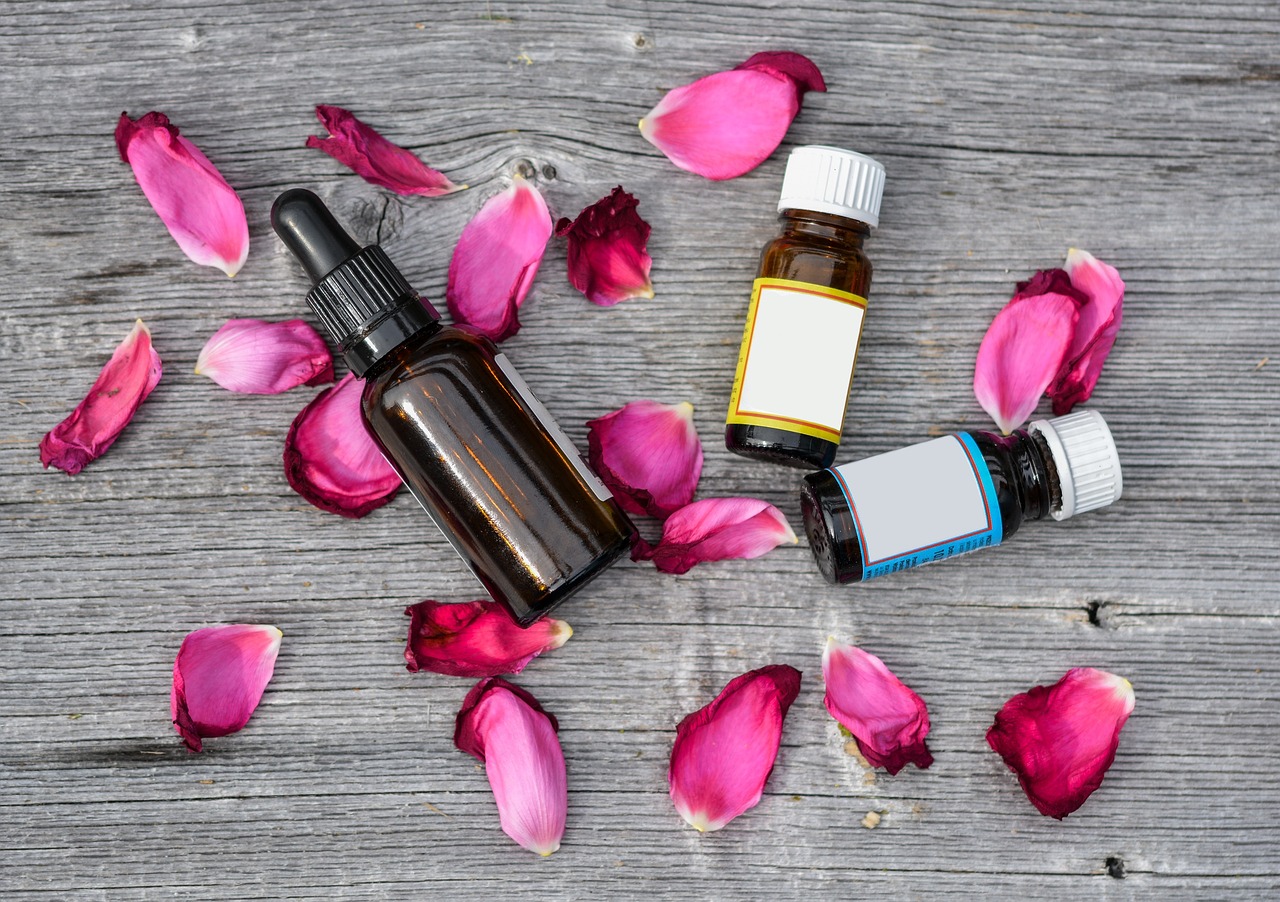
Pet Safety
When it comes to using essential oils in your garden, is a paramount concern that every gardener should take seriously. While essential oils are natural and can be incredibly effective for pest control, some oils can pose risks to our furry friends. It’s essential to remember that pets, particularly cats and dogs, have different sensitivities compared to humans. What might be harmless for us could be harmful to them.
Before introducing any essential oils into your gardening routine, it’s critical to do your homework. Here are a few key points to consider:
- Research Pet-Safe Oils: Certain oils, such as peppermint and lavender, are generally considered safe for pets, while others like tea tree oil can be toxic. Always check reliable sources to ensure the oils you plan to use won't harm your pets.
- Proper Dilution: Even pet-safe oils should be diluted properly before application. A good rule of thumb is to dilute essential oils with a carrier oil or water to minimize any potential irritation.
- Application Methods: Think about how you apply these oils. Spraying directly onto plants is often safer than applying them in areas where pets frequently roam. Avoid using oils on surfaces they might lick or chew.
It’s also wise to observe your pets after using essential oils. If you notice any unusual behavior, such as excessive drooling, vomiting, or lethargy, consult your veterinarian immediately. Keeping an eye on your pets and being aware of their reactions can help ensure their safety while you enjoy a pest-free garden.
In conclusion, while essential oils can be a fantastic tool for natural pest control, prioritizing your pet's safety is essential. By choosing pet-safe oils, diluting them properly, and applying them with care, you can create a healthy garden environment that protects both your plants and your beloved companions.
Here are some common questions about using essential oils for pest control and pet safety:
- Are all essential oils safe for pets? No, not all essential oils are safe. It's crucial to research each oil before use.
- What should I do if my pet ingests essential oils? If you suspect your pet has ingested essential oils, contact your veterinarian immediately for guidance.
- How can I tell if an essential oil is safe for my plants? Always test a small area of the plant first before applying extensively.
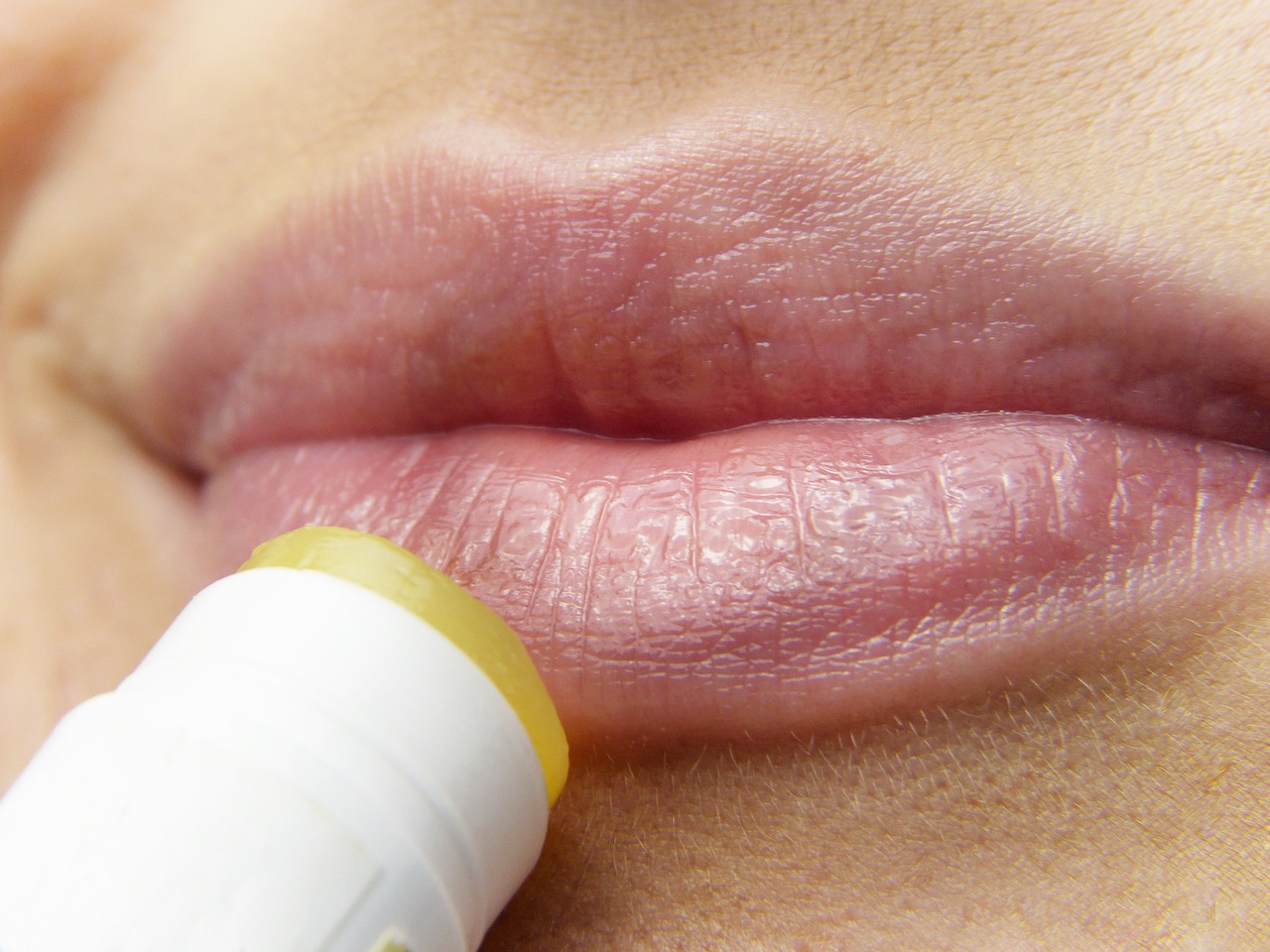
Plant Sensitivity
When it comes to using essential oils in your garden, is a crucial factor to consider. Not all plants react favorably to essential oils, and some may even suffer adverse effects. It's essential to understand which plants might be sensitive to these powerful natural substances before applying them widely. For instance, certain oils can be too potent for delicate plants, causing leaf burn or stunted growth. This is similar to how some people might react negatively to strong perfumes—what smells delightful to one person can be overwhelming or even harmful to another.
To ensure that your garden remains healthy while effectively repelling pests, it's wise to conduct a little research on the specific plants in your garden. Some plants, like mint or rosemary, are generally more resilient and can handle essential oils better than others. On the other hand, sensitive plants such as ferns or certain flowering varieties may not fare as well. Here are a few key considerations:
- Test First: Always test a small area of the plant before applying essential oils broadly. This can help you gauge the plant's reaction.
- Dilution is Key: If you decide to use essential oils, consider diluting them significantly to reduce the risk of damage.
- Observe and Adjust: After applying, keep a close eye on the plants for any signs of distress or adverse reactions.
Additionally, some essential oils are known to be more compatible with certain plant types. For example, lavender oil is often safe for most garden plants, while citrus oils can be harmful to sensitive varieties. Understanding these relationships can help you create a harmonious garden environment where both your plants and pest control methods thrive.
In summary, while essential oils can be an effective tool for pest control, it's vital to consider the sensitivity of your plants. By taking the time to research and test, you can ensure that your gardening efforts yield the best results without compromising the health of your beloved plants.
- Can essential oils harm my plants? Yes, some essential oils can cause damage to sensitive plants. Always test a small area first.
- Which essential oils are safe for all plants? Oils like lavender and tea tree are generally considered safe for most plants.
- How do I know if my plant is sensitive to essential oils? Look for signs of stress like yellowing leaves or stunted growth after application.
- Can I use essential oils around pets? Yes, but be cautious as some oils can be harmful to pets. Always check for pet-safe options.

Combining Essential Oils for Enhanced Effectiveness
When it comes to keeping pests at bay, combining essential oils can be a game-changer. Just like a well-orchestrated symphony, the right blend of oils can create a powerful defense against a variety of unwanted garden visitors. Each essential oil has its unique properties, and when mixed, they can enhance each other's effectiveness. Think of it as teamwork; together, they can achieve what one oil alone might struggle with.
For instance, combining lavender oil with eucalyptus oil can produce a scent that not only repels pests but also promotes a calming atmosphere in your garden. This blend works wonders against mosquitoes and flies, creating a serene outdoor space where you can relax without the annoyance of buzzing insects. Similarly, a mix of tea tree oil and lemon oil can create a potent repellent that targets a broader range of pests, including ants and spiders.
Here’s a simple table summarizing some popular essential oil blends and their targeted pests:
| Essential Oil Blend | Targeted Pests |
|---|---|
| Lavender + Eucalyptus | Mosquitoes, Flies |
| Tea Tree + Lemon | Ants, Spiders |
| Peppermint + Citronella | Ants, Fleas |
Creating your own blends is not only easy but also fun! You can start with a base oil, like coconut or olive oil, and add a few drops of your chosen essential oils. A good rule of thumb is to keep the ratio at about 10-15 drops of essential oil per ounce of carrier oil. This way, you’ll have a concentrated mix that effectively wards off pests without overwhelming your plants.
Moreover, experimenting with different combinations can lead to delightful discoveries. Have you ever thought about how certain scents can evoke memories or feelings? Your garden can be a sensory experience where the aroma of your pest-repelling oils not only keeps the bugs away but also creates a pleasant environment for you and your family. So, don’t hesitate to play around with your blends until you find the perfect mix that suits your garden’s unique ecosystem.
In conclusion, combining essential oils can significantly enhance their effectiveness in pest control. By understanding the properties of each oil and how they interact, you can create a potent, natural solution that not only protects your garden but also enriches your outdoor experience. So, grab those bottles of essential oils and start mixing your way to a pest-free paradise!
- Can I use essential oils directly on my plants? It's best to dilute essential oils with a carrier oil or water before applying them directly to plants to avoid potential damage.
- How often should I reapply essential oils in my garden? Reapplication may be necessary every few days, especially after rain or watering, to maintain effectiveness.
- Are there any essential oils that are harmful to pets? Yes, some essential oils can be toxic to pets, so it's crucial to research pet-safe options and consult with a veterinarian if unsure.
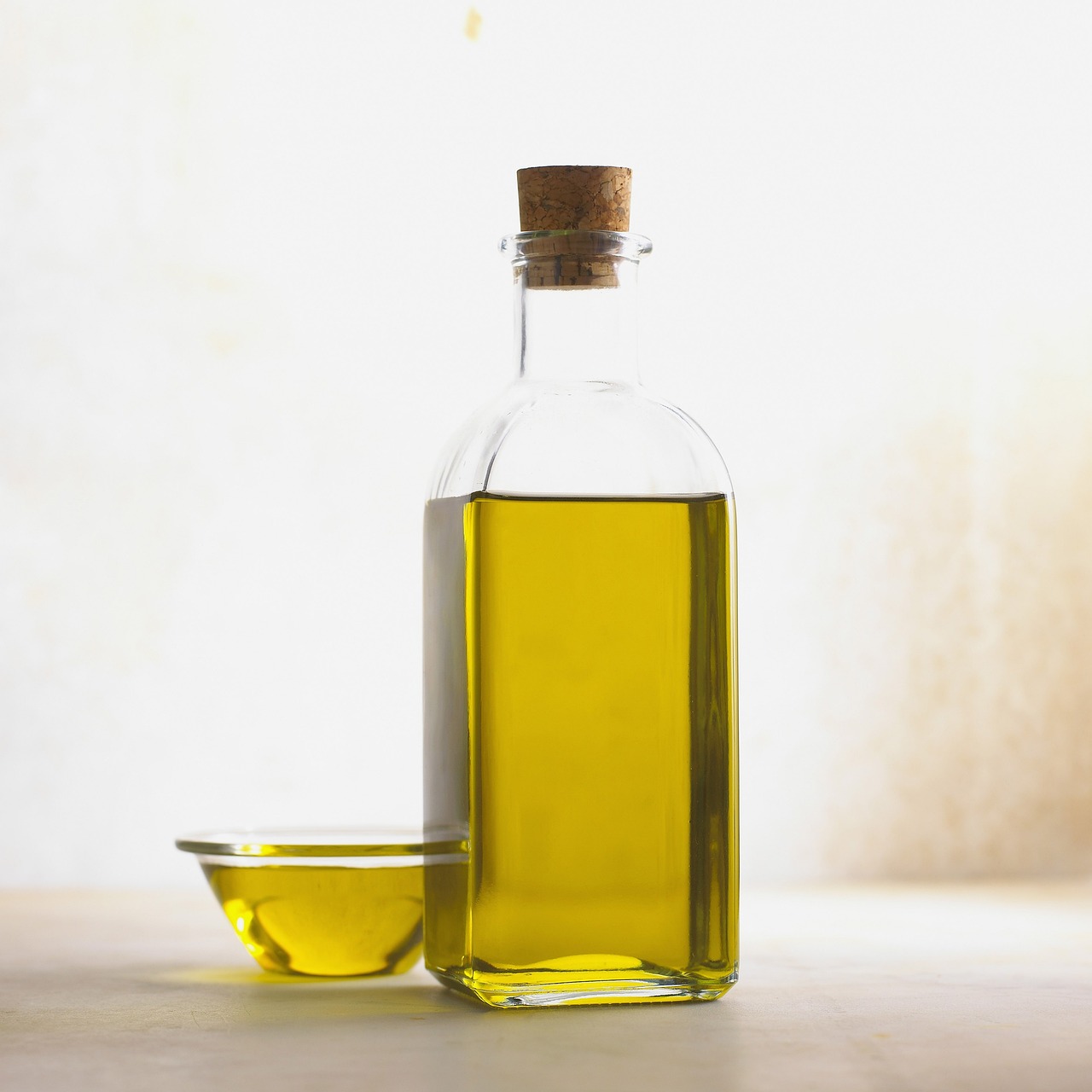
Popular Oil Blends
This article explores how essential oils can be an effective and natural solution for pest control in gardens, providing insights into specific oils, application methods, and benefits.
Essential oils offer a range of benefits for pest control, including their natural properties, safety for plants and humans, and effectiveness against various pests without harmful chemicals.
Certain essential oils are particularly effective at repelling pests. This section highlights the most potent oils, such as peppermint, citronella, and eucalyptus, and their specific pest-repelling properties.
Peppermint oil is known for its strong scent, which deters ants, spiders, and other pests. It is easy to use and can be diluted for application in the garden.
To effectively use peppermint oil, it can be mixed with water and sprayed around the garden or applied to cotton balls placed strategically to repel unwanted insects.
In addition to repelling pests, peppermint oil also has a refreshing aroma and can promote a pleasant gardening experience while being safe for plants and beneficial insects.
Citronella oil is widely recognized for its effectiveness against mosquitoes and other flying insects. Its natural properties make it an excellent choice for outdoor gardens and patios.
There are various methods to apply essential oils in the garden, including sprays, diffusers, and soaked cotton balls. This section discusses the most effective techniques for optimal results.
Creating a spray solution with essential oils allows for targeted application on plants and surrounding areas, providing immediate protection against pests while being easy to reapply as needed.
Essential oil diffusers can be strategically placed in garden areas to disperse scents that repel pests, creating a barrier against unwanted insects while enhancing the overall atmosphere of the garden.
While essential oils are natural, it’s important to consider safety when using them. This section outlines precautions to take, especially regarding pets, children, and sensitive plants.
Certain essential oils can be harmful to pets if ingested or applied directly. This subsection emphasizes the importance of researching pet-safe oils and proper application methods to ensure safety.
Not all plants react well to essential oils. This part discusses which plants may be sensitive to oils and how to test for compatibility before widespread application.
Mixing different essential oils can enhance their pest-repelling properties. This section explores synergistic blends that maximize effectiveness against a broader range of pests.
When it comes to creating an effective pest control strategy using essential oils, combining different oils can yield remarkable results. Think of it like cooking; just as certain spices complement each other to enhance flavor, essential oils can work together to create a powerful repellent. Here are some popular combinations that gardeners have found effective:
- Lavender and Eucalyptus: This blend not only smells divine but is also effective against mosquitoes and flies. Lavender is known for its calming properties, while eucalyptus adds a strong, refreshing scent that pests dislike.
- Tea Tree and Lemon: This combination packs a punch against a variety of insects. Tea tree oil is a natural antiseptic, and lemon oil is a great insect repellent, making this blend perfect for keeping pests at bay.
- Peppermint and Rosemary: Both oils have strong scents that are effective against ants and spiders. This blend can create a refreshing atmosphere while warding off unwanted guests.
To create your own blends, simply mix a few drops of each oil with a carrier oil or water in a spray bottle. Shake well before each use, and apply it around your garden. You’ll be amazed at how these natural scents can transform your gardening experience!
Using essential oils in the garden not only protects plants from pests but also promotes a healthier environment. This conclusion summarizes the benefits and encourages gardeners to adopt these natural methods.
Q: Are essential oils safe for pets?
A: Some essential oils can be harmful to pets. Always research pet-safe options and consult your vet if unsure.
Q: How often should I apply essential oils in my garden?
A: It's best to reapply every few days, especially after rain or watering, to maintain effectiveness.
Q: Can essential oils harm my plants?
A: Most essential oils are safe for plants, but some may cause sensitivity. Always test on a small area first.
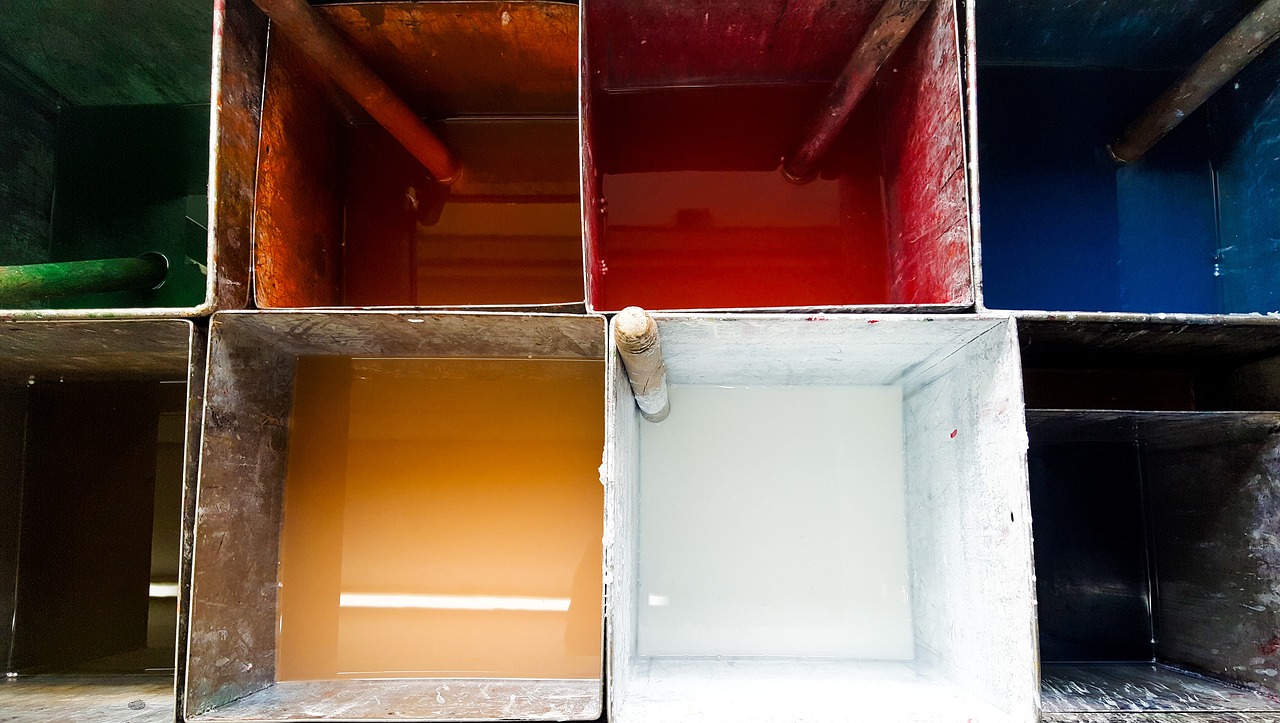
DIY Recipes for Pest Control
If you're looking to keep pests at bay without resorting to harsh chemicals, creating your own essential oil pest control solutions can be both fun and effective! These DIY recipes harness the power of nature to protect your garden while providing a safe environment for plants, pets, and people. Let’s dive into some easy-to-follow recipes that will help you create your own pest-repelling sprays and blends.
One of the simplest recipes involves using peppermint oil, which is known for its invigorating scent and ability to repel a variety of pests. To make a peppermint pest spray, you’ll need:
- 2 cups of water
- 10-15 drops of peppermint essential oil
- A spray bottle
Simply mix the water and peppermint oil in the spray bottle, shake well, and apply it to areas where pests are a problem. This concoction not only deters ants and spiders but also leaves a refreshing aroma in your garden.
Another fantastic recipe combines citronella and eucalyptus oils, both of which are excellent for repelling mosquitoes. For this blend, gather:
- 1 cup of water
- 5 drops of citronella oil
- 5 drops of eucalyptus oil
- A spray bottle
Mix the ingredients in the spray bottle, shake thoroughly, and spray around your garden, especially near seating areas where you might want to enjoy a peaceful evening outdoors. This blend not only keeps the mosquitoes away but also creates a pleasant outdoor atmosphere.
For those who prefer a more concentrated approach, you can create a soak for cotton balls. This method is particularly useful for placing around the garden as a barrier against pests. You can use a combination of tea tree oil and lavender oil for this recipe. Here’s what you’ll need:
- 10 cotton balls
- 5 drops of tea tree essential oil
- 5 drops of lavender essential oil
Simply soak the cotton balls in a small bowl with the oils and then place them strategically around your garden. The scent will deter pests while being safe for your plants.
Lastly, if you want to create a more potent solution, consider making a concentrated essential oil blend. This can be stored and diluted as needed. A great recipe includes:
- 1 tablespoon of clove oil
- 1 tablespoon of rosemary oil
- 1 tablespoon of thyme oil
- 1 cup of water
Combine these ingredients in a bottle and shake well. When ready to use, dilute a few drops in water and spray it directly onto plants and areas prone to pest infestations. This blend not only repels pests but also can help prevent fungal diseases.
By using these DIY recipes, you can embrace a natural approach to pest control that is both effective and easy to make. Plus, you’ll enjoy the satisfaction of knowing that you’re using safe ingredients to protect your garden. So roll up your sleeves, gather your essential oils, and start crafting your pest-repelling solutions today!
Q: Are essential oils safe for all plants?
A: While many plants benefit from essential oils, some may be sensitive. It's best to test a small area before widespread application.
Q: How often should I reapply my essential oil sprays?
A: Reapplication depends on weather conditions. After rain or heavy watering, it's advisable to reapply your sprays.
Q: Can essential oils harm pets?
A: Some essential oils can be harmful to pets if ingested or applied directly. Always research pet-safe oils and consult with a veterinarian if unsure.
Q: How can I store my DIY pest control solutions?
A: Store your solutions in a cool, dark place in a tightly sealed container to maintain their potency.
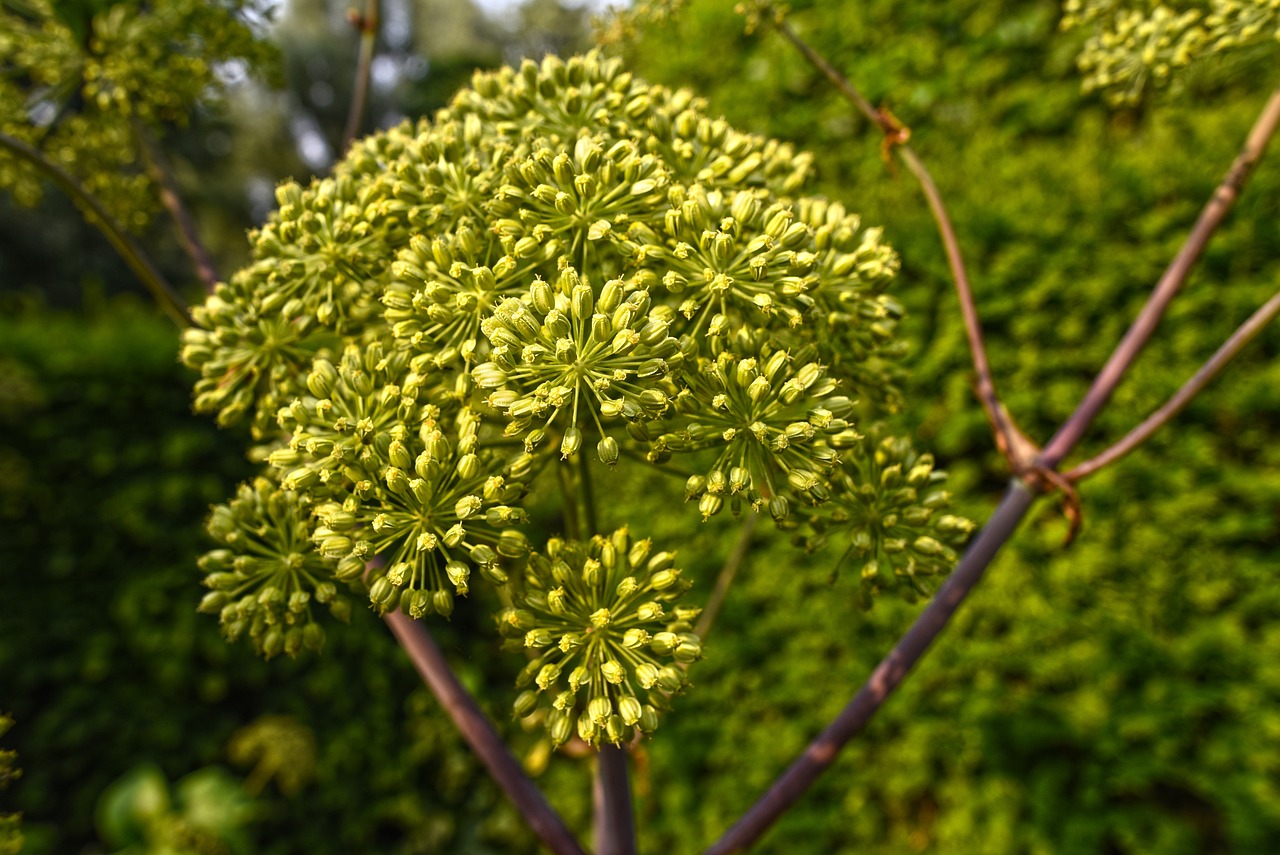
Conclusion: Embracing Natural Pest Control
In conclusion, using essential oils in your garden is not just a trendy choice; it's a step towards embracing a more natural and sustainable approach to pest control. By opting for these aromatic oils, you are not only protecting your plants from pesky invaders but also fostering a healthier ecosystem. Imagine walking through your garden, surrounded by vibrant blooms and the refreshing scents of nature, all while knowing that you are avoiding harsh chemicals that could harm beneficial insects and the environment.
As we've explored, essential oils like peppermint, citronella, and eucalyptus offer powerful repelling properties against a variety of pests. These oils create a protective barrier that is both effective and safe for your plants. Moreover, the act of using these natural solutions can transform your gardening experience into a more enjoyable and aromatic journey. It's like giving your garden a natural shield while indulging in the delightful scents that essential oils provide.
However, it's crucial to remember that while essential oils are generally safe, they still require a thoughtful approach. Always consider the safety of your pets, children, and sensitive plants before applying these oils. Conducting a little research and testing compatibility can go a long way in ensuring a successful pest control strategy. Think of it as being a responsible gardener—one who not only nurtures their plants but also respects the natural balance of their garden.
As you embark on your journey to incorporate essential oils into your pest control routine, consider experimenting with different blends and application methods. This not only maximizes effectiveness but also allows you to personalize your garden care. Whether you prefer sprays, diffusers, or DIY recipes, there are countless ways to keep your garden thriving and free from unwanted guests.
So why not take the plunge? Embrace the power of nature and let essential oils be your allies in the fight against garden pests. By making this switch, you are contributing not just to the health of your plants but also to a more sustainable and eco-friendly gardening practice.
- What are essential oils? Essential oils are concentrated plant extracts that capture the natural aroma and properties of the plant.
- Are essential oils safe for pets? Some essential oils can be harmful to pets, so it's important to research pet-safe options and use them correctly.
- How do I apply essential oils in my garden? You can use essential oils in various ways, including sprays, diffusers, or soaked cotton balls placed around the garden.
- Can I mix different essential oils? Yes! Combining essential oils can enhance their effectiveness against a wider range of pests.
- Are essential oils effective against all pests? While many essential oils are effective against common pests, results can vary, so it’s best to experiment with different oils.
Frequently Asked Questions
- What are essential oils and how do they help in pest control?
Essential oils are concentrated plant extracts that capture the natural fragrance and beneficial properties of the plants. They help in pest control by emitting strong scents that repel various insects, making them a natural alternative to chemical pesticides.
- Which essential oils are most effective for repelling pests?
Some of the most effective essential oils for repelling pests include peppermint, citronella, eucalyptus, and lavender. Each of these oils has unique properties that target specific pests, providing a natural barrier against unwanted visitors in your garden.
- How can I apply essential oils in my garden?
You can apply essential oils in several ways, such as creating a spray solution, using diffusers, or soaking cotton balls in the oils and placing them around your garden. Each method allows for targeted application, ensuring that the oils reach the areas where pests are most likely to invade.
- Are essential oils safe for pets and children?
While many essential oils are natural, some can be harmful to pets and children if ingested or improperly used. It's important to research which oils are safe and to apply them in a way that minimizes any risk to your loved ones.
- Can essential oils harm my plants?
Not all plants react well to essential oils; some may be sensitive to certain oils. It's advisable to test a small area before widespread application to ensure that your plants are compatible with the oils you're using.
- How can I create my own essential oil pest control solutions?
Creating your own pest control solutions is simple! You can mix essential oils with water in a spray bottle or combine different oils to enhance their effectiveness. There are many DIY recipes available that guide you through the process of making your own blends.
- What are some popular essential oil blends for pest control?
Popular blends include lavender and eucalyptus, which can repel a variety of pests, and tea tree with lemon, known for its strong repelling properties. These combinations not only enhance effectiveness but also leave a pleasant aroma in your garden.



















